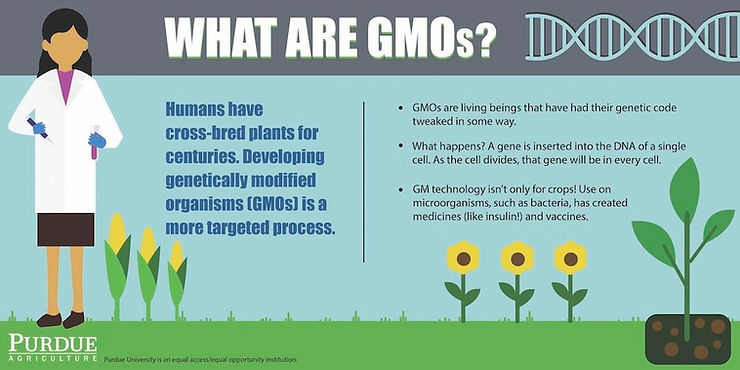By: Amanda Yang
Since we started agriculture, we have been doing selective breeding on crops and animals. We’ve changed cattle, dogs, cats, and other animals to be tame. Nowadays, we have GMOs to change our animals, but should we use this newfound power?
GMOs stand for “Genetically Modified Organisms,” which means that we change plants and animals in a way that we can’t do with breeding. For example, golden rice and rainbow papaya are two examples of people using GMOs. Golden rice has a lot of vitamin A, while rainbow papaya has resistance to papaya ringspot virus. The ringspot virus will stunt the papaya tree’s crown, yellowing the crown, and making dark rings on the fruit’s skin.
GMOs are a total game-changer, making it so that foods are more nutritious to deal with and resistant to disease, and not only that, but they help us deal with rising problems like pollution. Scientists have implanted jellyfish or sea anemone into fish, making them luminescent. This helps to show when waterways were contaminated. If the fish glow, it means that pollution was in the water they lived in. Apples, corn, cotton, soybeans, potatoes, and many other crops have been genetically modified in a good way.
Well, if GMOs are that good, why don’t we go all in on them? It’s because GMOs may be great in some people’s eyes, but they may have some side effects. GMOs can cause diseases that are immune to antibiotics—sometimes, cancer, nutrition loss, allergic reactions, and even more negative impacts. Some people think the risks are too high, so they don’t eat or use GMOs.
Are GMOs that bad? They have prevented diseases in our food, but they might start new ones in us. Whether you want to eat them, you decide.











